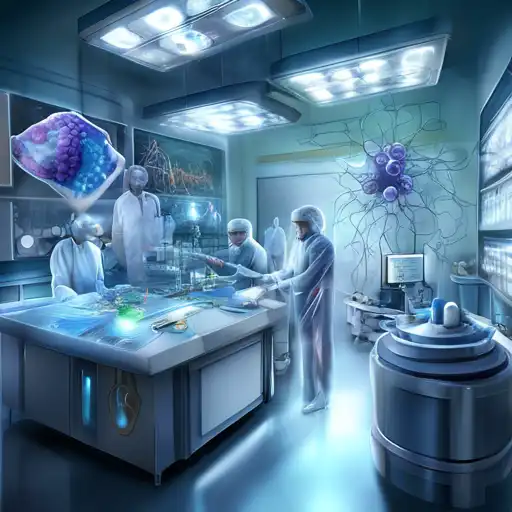Introduction to Nanotechnology in Medicine
Nanotechnology, the science of manipulating matter at the atomic and molecular scale, is set to revolutionize the medical field. With its potential to diagnose, treat, and prevent diseases at a cellular level, nanotechnology in medicine is indeed the next big thing. This article explores the groundbreaking advancements and the future prospects of nanotechnology in healthcare.
The Role of Nanotechnology in Modern Medicine
Nanotechnology offers unprecedented opportunities in medicine, from targeted drug delivery systems to nanorobots capable of repairing damaged tissues. By operating at the same scale as biological molecules, nanotechnology enables precise interventions that were previously unimaginable.
Targeted Drug Delivery
One of the most promising applications of nanotechnology is in the development of targeted drug delivery systems. These systems can deliver drugs directly to diseased cells, minimizing side effects and improving treatment efficacy. For example, nanoparticles can be engineered to target cancer cells specifically, leaving healthy cells unharmed.
Nanorobots in Surgery
Nanorobots, or nanobots, represent another exciting application. These microscopic robots can perform surgeries at a cellular level, offering a non-invasive alternative to traditional surgical methods. Imagine a future where surgeries are performed without incisions, thanks to the precision of nanobots.
Challenges and Ethical Considerations
Despite its potential, the integration of nanotechnology into medicine faces several challenges. These include technical hurdles, such as the difficulty of manufacturing nanoscale devices, and ethical concerns regarding privacy and the potential for misuse.
Technical Challenges
The development of nanotechnology-based medical devices requires advanced materials and manufacturing techniques. Ensuring the safety and efficacy of these devices is paramount, necessitating rigorous testing and regulatory approval processes.
Ethical Concerns
The use of nanotechnology in medicine also raises ethical questions, particularly concerning patient privacy and the potential for enhancing human capabilities beyond therapeutic purposes. It is crucial to address these concerns to ensure the responsible development of nanotechnology in healthcare.
The Future of Nanotechnology in Medicine
The future of nanotechnology in medicine is bright, with ongoing research exploring new applications and improving existing technologies. From personalized medicine to the eradication of diseases, nanotechnology holds the key to a healthier future.
Personalized Medicine
Nanotechnology could enable the development of personalized medicine, where treatments are tailored to the individual's genetic makeup. This approach could significantly improve treatment outcomes and reduce adverse effects.
Eradicating Diseases
With its ability to target diseases at their source, nanotechnology offers hope for eradicating some of the most challenging diseases, including cancer and neurodegenerative disorders. The potential to repair or replace damaged cells could transform the treatment of these conditions.
In conclusion, nanotechnology in medicine represents a frontier of medical science with the potential to transform healthcare. While challenges remain, the ongoing advancements in this field promise a future where diseases are treated more effectively and with fewer side effects. The integration of nanotechnology into medicine is not just the next big thing—it's the future of healthcare.
